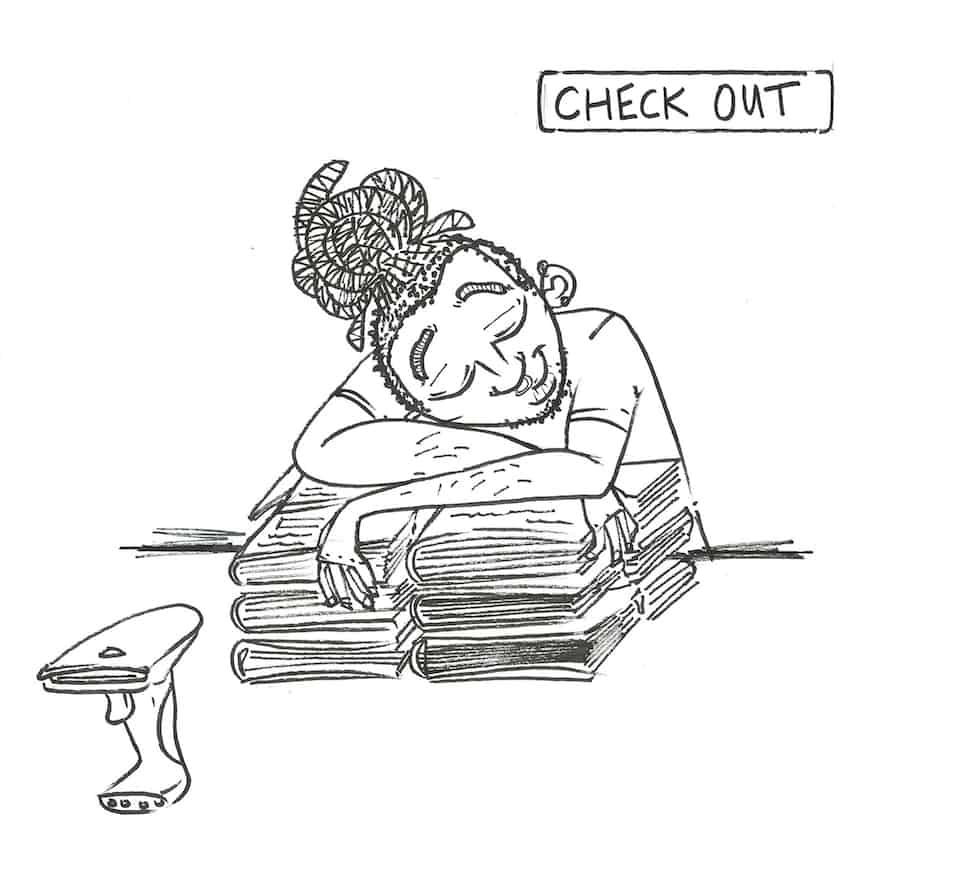Sleep, sleep, sleep. For many of us, getting enough of it can seem like an impossible task. Between studying for midterms and trying to cope with overwhelming amounts of readings, sleep is something that students never seem to have enough of.
We all know that we need at least eight hours of sleep, but how many of us actually meet that requirement?
Before you despair, however, consider the following: many people in prehistoric times, before smartphones and homework were even invented, also slept less than eight hours.
[pullquote]Many people in prehistoric times, before smartphones and homework were even invented, also slept less than eight hours.[/pullquote]
In fact, new research conducted on the sleep patterns of people in non-industrialized areas, revealed that people in these communities got on average, 6.4 hours of sleep.
Not only is this about the same amount of sleep that people leading a busy urban lifestyle get, but the number also falls beneath the recommended eight hours.
The research was conducted by observing members of Bolivia’s Tsimane, who lead lifestyles of hunting, and live in houses made of grass and mud.
Members of the Tsimane do not have artificial lighting or climate control. After dark, they eat, chat, weave and sometimes hunt -— taking this time to connect and socialize with family and friends. The research revealed that they would fall asleep, on average, three and a half hours after sunset, and wake up at sunrise. In fact, among them, the late risers were the ones that got up just an hour after sunrise.
Other research has found similar results. People who live in areas without electricity tend to sleep the same amount as those who live in industrialized parts of the world. One of the primary researchers, Jerome Siegel from the University of California, stated that “seeing the same pattern in [makers] groups separated by thousands of miles on two continents [makes] it pretty clear that this is the natural pattern.”
The major factor contributing to this natural sleep pattern are temperature and light control. Having the right temperature when sleeping and allowing the right amount of light makes our body more relaxed and keeps our mind better rested.
Siegel said that we would benefit more from recreating ancient conditions of light and warmth. The study also found that the sleep patterns changed in winter and summer, and so did the nap times. This suggests that mimicking aspects of the natural environment can help regulate a natural sleep pattern.
Is technology to blame then? Apparently, yes. The study found that subjects that were on some sort of electronic device took longer to fall asleep then those who slept while reading a book. The subjects who spent more time on their devices were also found to be groggier in the morning.
So, how does all of this relate to the modern-day? Well, to start with, it implies that although, we as students may not get the suggested eight hours of sleep, we can do certain things to better regualte our sleep patterns.
Professor Judith Anderson of the Department of Psychology shared some tips. She advised students to find a sleeping routine and start it about an hour before bedtime. You can help make your sleep more efficient before you even go to bed by engaging in calming activities such as relaxing, or reading a book. What is most important is to not look at any blue screens or electronics, as those keep your brain awake and stimulated.
She suggested letting the room be very dark; “your brain is able to fall into the deepest, most restful level of sleep if it is quiet and dark.”
Going to sleep and getting up at the same times every day were recommended as well, as this will allow your body to regulate its sleep cycle, It will also ensure that you are more efficient with your time because you know that everything has to be done by bedtime.
And finally, don’t hit the snooze button! This disrupts your natural sleep rhythm, and in fact, you may end up being in even deeper sleep than before the alarm was turned off.


